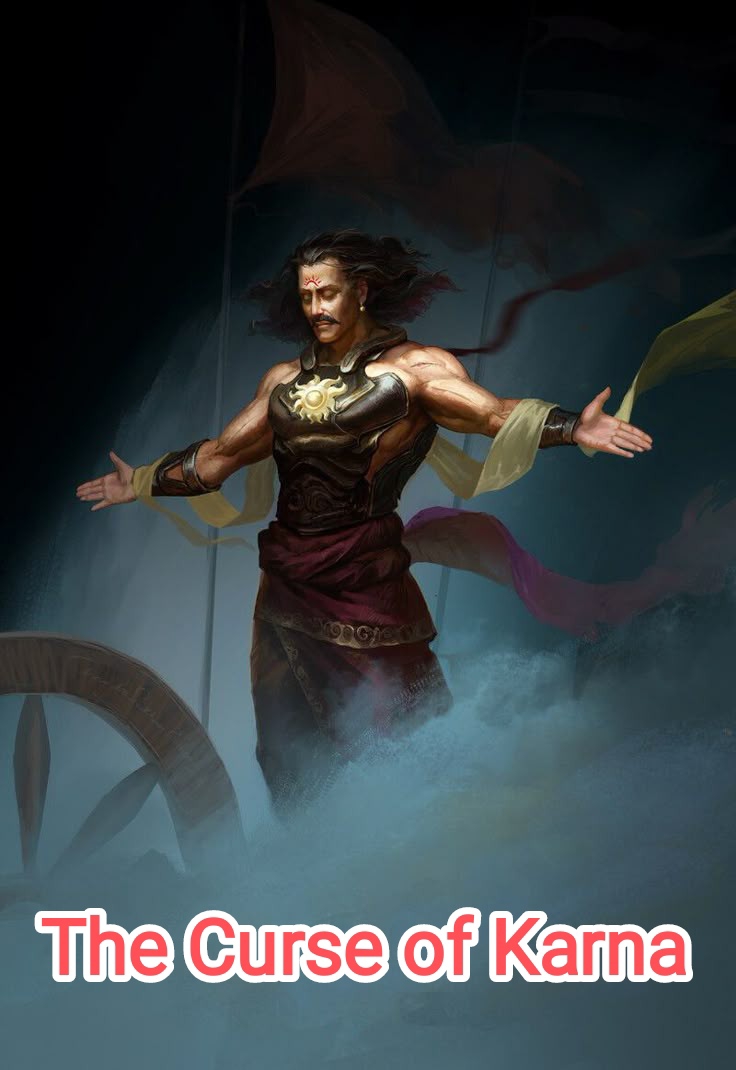T.P. Kailasama’s 'The Curse or Karna'
Greetings,
This blog is part of a thinking activity assigned by Megha ma'am. It contains my personal, opinion-based answers to the questions provided by her.
Q] Write a critical note on the class conflict and caste conflict in 'The Curse or Karna'.
In 'The Curse', Karna is shown as a brave and loyal warrior, known for his strength and kindness. However, his life is deeply shaped by the unfair treatment he receives because of his low-caste origins, parentage, and being an outsider within the Kuru dynasty.
Karna’s Struggle with Caste
A big part of the story is about Karna’s fight to rise above the label of being a "Suta-putra", the son of a charioteer. Even though he’s born from Kunti and the Sun God, his lower-caste upbringing makes people question his true worth. Karna’s stuck between two worlds—his humble birth and his divine heritage, which he can’t claim.
Kailasam uses this to show how unfair and rigid the caste system is. No matter how talented or noble Karna is, he’s always looked down on because of his caste. Moments like Dronacharya refusing to teach him, Draupadi rejecting him at her swayamvara, and society’s overall treatment of him all highlight how deeply caste divisions run, where being born into a higher caste is valued more than actual abilities.
Class Conflict: The Struggle for Acceptance
Alongside caste, the play also deals with class conflict. Karna’s situation is compared to the Pandavas and Kauravas, who belong to the ruling class. They have power, respect, and opportunities simply because of their noble birth, while Karna, even with his skills, has to constantly fight to be accepted.
Karna’s loyalty to Duryodhana can be seen as a result of this class struggle. Despite Karna’s low caste, Duryodhana accepts him, seeing in him someone who can help him challenge the Pandavas’ dominance. For Karna, this friendship gives him the recognition that society has always denied him. Their bond shows how those who want power and those who are marginalized can team up, each with their own motives.
Through this, Kailasam criticizes how people are often used by the class system, with relationships being turned into ways to gain power. Duryodhana uses Karna for his own political goals, but Karna stays loyal, hoping for the acceptance that he’s been denied by society. His story is tragic because, even though he’s used by the higher class, he never gets the respect and benefits they enjoy.
Karna’s Tragic Fate: Where Caste and Class Meet
In the end, Kailasam shows how caste and class together shape Karna’s tragic destiny. Even with his fighting skills and royal ancestry, Karna’s dreams are constantly blocked by his low birth and social status. His attempts to rise above these limits through loyalty and bravery end up failing because society is too rigid to accept him.
Kailasam turns Karna’s personal tragedy into a larger criticism of how unfair caste and class systems are. Karna’s downfall doesn’t come from any personal flaw, but from a society that refuses to look past class and caste labels. Through this, the play highlights how these social systems damage people by valuing birth status over real talent and ability.
Q] Is moral conflict and Hamartia there in Karna's Character?
Karna’s moral struggle becomes intense when Kunti, his birth mother, reveals the truth about his origins and claims him as one of the Pandavas. She begs him to join his brothers in the war. Karna, now knowing he is just as strong as the Pandavas and sharing their blood, is stuck in a tough spot. On one side, he’s learned who he really is and that he has a family bond with the Pandavas, but he’s already on the Kauravas’ side, their rivals. On the other side, his loyalty to Duryodhana pulls him back. Duryodhana had shown Karna respect and raised his status when no one else did, making Karna feel obligated to stay loyal to him. His conflict is whether to fight with his new-found brothers or stay true to Duryodhana, who gave him a place in society.
Karna’s tragic flaw, or "hamartia", comes from the time he lied to his teacher, Parshuram, to gain knowledge. Knowing Parshuram only taught Brahmins, Karna pretended to be one, hiding the fact that he was a Kshatriya. This lie led to a curse that later came back to hurt him in battle. This dishonesty is one of his main character flaws. Another big flaw is his blind loyalty to Duryodhana. Even though Karna knew Duryodhana’s actions weren’t always right, he stayed loyal to him, even leading the fight against Arjuna in the Kurukshetra war. Karna’s tragic end reflects Aristotle’s idea of the “flawed good man,” someone who is basically virtuous but is brought down by their own mistakes. Aristotle believed that real goodness comes from acting according to virtue, but Karna’s virtues are overshadowed by his flaws, leading to his downfall.





Comments
Post a Comment